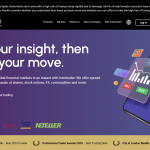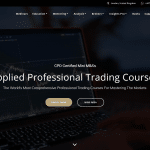A forex broker, short for foreign exchange broker, is a financial services firm or individual that facilitates currency trading for retail and institutional clients. They provide access to the global foreign exchange (FX) market, allowing traders to buy and sell currency pairs through online trading platforms. In 2025, forex brokers are a key link between individual traders and the interbank market, offering leverage, execution, analysis tools, and customer support.
What does a forex broker do?
Forex brokers act as intermediaries between traders and the currency markets. Their main functions include:
- Providing a trading platform (e.g. MT4, MT5, cTrader)
- Facilitating trade execution for buying/selling currency pairs
- Offering leverage and margin accounts
- Streaming real-time prices and liquidity
- Charging spreads, commissions, or both
- Maintaining client accounts and regulatory compliance
Some brokers act as market makers, while others operate on ECN/STP models that route trades directly to liquidity providers.
Types of forex brokers
1. Dealing desk (Market Maker)
- Takes the opposite side of client trades
- Sets internal pricing, may widen spreads
- Often offers fixed spreads and no commission
- Suited for beginners or low-volume traders
2. STP (Straight Through Processing)
- Routes client orders to external liquidity providers
- No dealing desk interference
- Variable spreads, faster execution
- Ideal for intermediate traders
3. ECN (Electronic Communication Network)
- Connects clients to a pool of liquidity providers
- True market pricing with tight spreads + fixed commission
- No requotes, anonymous order book
- Favoured by scalpers, EAs, and pros
Key features of modern forex brokers
- Currency pair access – Majors (EUR/USD), minors (GBP/JPY), exotics (USD/TRY)
- Leverage – Ranges from 1:30 (regulated) to 1:1000 (offshore)
- Account types – Standard, Raw Spread, Cent, Pro
- Trading tools – Economic calendars, indicators, news feeds
- Platforms – MT4, MT5, cTrader, proprietary apps
- Regulation – FCA, ASIC, CySEC, FSCA, etc.
Forex broker example workflow
- You open a trading account with a broker (e.g. TibiGlobe or Vantage)
- You deposit funds via bank card, wallet, or crypto
- You trade currency pairs (e.g. buying EUR/USD) using leverage
- The broker executes your trade, either internally or via external liquidity
- You close your position, and the profit/loss reflects in your account
- You withdraw funds or reinvest
Forex broker vs trader: what’s the difference?
| Aspect | Forex Broker | Forex Trader |
|---|---|---|
| Role | Intermediary / service provider | Market participant |
| Revenue model | Spread, commission, or B-book profits | Profit from market price movements |
| Regulation | Must be licensed (FCA, ASIC, etc.) | Not regulated unless managing client funds |
| Tools provided | Platforms, leverage, analytics | Uses tools to make informed trade decisions |
Key takeaways
- A forex broker is a financial intermediary that enables traders to access the FX market
- Brokers provide platforms, pricing, leverage, and liquidity for trading currency pairs
- They may operate as market makers or ECN/STP providers, each with different pricing models
- Top brokers are regulated and offer modern tools, mobile apps, and low-cost execution
- Choosing the right broker is crucial for your strategy, risk management, and success
Frequently Asked Questions
What is the meaning of forex broker?
A forex broker is a company that facilitates the buying and selling of currencies by offering access to trading platforms, real-time pricing, and trade execution.
Do forex brokers make money from traders?
Yes. Brokers earn through spreads, commissions, swap fees, or by taking the opposite side of trades (market making).
Is a forex broker necessary to trade currencies?
Yes. You need a licensed broker to access the forex market, unless you trade directly through a bank or institution.
What is the difference between ECN and market maker brokers?
ECN brokers connect you to real market liquidity with tight spreads and commission fees, while market makers quote prices internally and may widen spreads.
Are forex brokers regulated?
The best brokers are regulated by authorities like the FCA (UK), ASIC (Australia), CySEC (EU), or FSCA (South Africa) for client protection and compliance.




Leave a Reply
Please log in or register to share your thoughts.